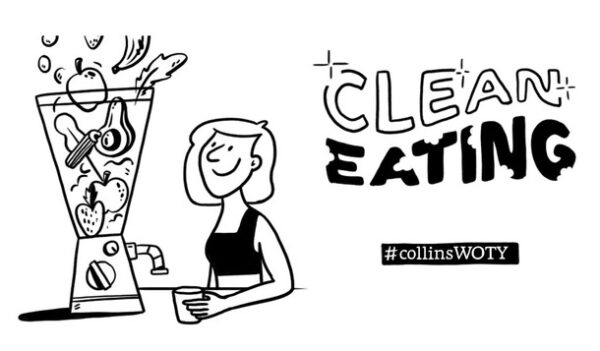To celebrate Collins Word of the Year 2015, we explore the etymology of ‘clean eating’.
It seems that every year brings a new philosophy as to the best way to regulate our intake of food to ensure optimum health and fitness. One idea that has gained many supporters recently is ‘clean eating’, which argues that we should avoid all packaged and processed foods and that we should only eat foods in their natural states. By following this regime we can avoid exposing our bodies to unhealthy levels of sugar, salt, and fat.
The phrase may perhaps be influenced by the use of ‘clean’ in earlier phrases such as ‘clean technology’ and ‘clean burning’, which both refer to processes that produce no harmful by-products. ‘Clean’ is certainly a natural and obvious name for a diet based on avoiding impurities. It is interesting to note, however, that ‘clean’ developed from the Old English word clǣne, which was related to the Frisian word klēne, meaning ‘small’. If the word had retained this original connotation, then the concept of ‘clean eating’ might be rather less attractive.
Alice Liveing, author of Clean Eating Alice, offers her expertise on how to clean eat

Clean Eating is something that has redefined my whole approach to eating. I realised that after suffering years of bad skin, constant fatigue and feeling uncomfortable and unhappy about my appearance I had to completely overhaul my approach to cooking and eating. I started experimenting with food, and found that simply changing what I ate for breakfast had a huge impact on my mood and energy for that day. Of course, the term clean eating is subjective and can mean different things to different people, but for me it is about developing a healthy relationship with food. I don’t restrict myself or feel like I am dieting as such, but I now feel I’ve learned how best to fuel my body with tasty and nutritious food. Having a balanced approached to eating means treating myself too, as I just couldn’t live without my ice cream fix!!
Keep up with Alice’s clean eating on Instagram
Etymology Corner – ‘Binge-watch’
Etymology Corner – ‘Corbynomics’



